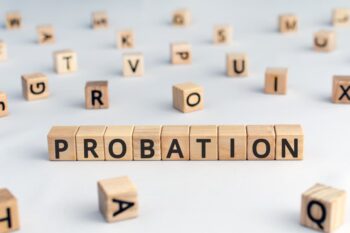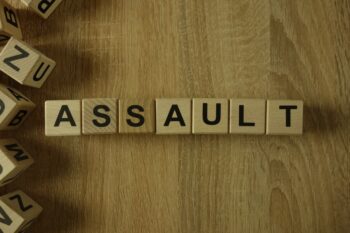Experienced Miami Criminal Attorney for All Fraud Charges
Telemarketing fraud is common throughout Florida. It is, in fact, so frequent that the Florida Legislature has enacted specific provisions requiring telemarketers to be licensed by the state. These and other consumer protection statutes are designed to shield the public from unscrupulous telephone solicitations, but they can also be used to file criminal charges against those accused of telemarketing fraud. It is important for those facing charges under these laws to be represented by an experienced criminal attorney in Miami who thoroughly understands Florida’s telemarketing laws.
At Stroleny Law: Criminal Defense Attorney, our experienced criminal defense attorney is skilled in handling telemarketing fraud cases. He can help protect your constitutional rights against self-incrimination, illegally seized evidence, improper jury procedures, or excessive punishments. Our criminal lawyer holds prosecutors accountable for proving their cases beyond a reasonable doubt. Call (305) 615-1285 today to schedule your free consultation.
Request a Free Case Evaluation
Telemarketing Licensure Requirements
Chapter 501 of the Florida Statutes provides consumer protection to the regulation of trade, commerce, investments, and solicitation. The Florida Telemarketing Act is a section within this chapter that lists specific legal requirements telemarketers must follow in the State of Florida. All telemarketers must be licensed by the Department of Agriculture and Consumer Services. Section 501.623 makes it a crime to solicit purchasers on behalf of a commercial telephone seller who is not currently licensed with the department. A violation of this rule is a third-degree felony.
There are, however, important exceptions to the licensing requirement. Section 501.604 allows unlicensed salespersons to make telephone solicitations for a single transaction (as long as they do not make repeated transactions). Unlicensed salespersons may also solicit for religious, charitable, political, or educational purposes. It is important to understand these exemptions in order to prevent a wrongful conviction if one of them applies. An experienced Miami telemarketing fraud attorney can help you determine if an exemption applies to your circumstances.
Telemarketing Fraud
A fraudulent scheme committed by telephone can also be prosecuted under Florida’s general fraud statutes. Chapter 817 of the Florida Statutes prohibits a wide variety of specific fraudulent practices. These include:
- Obtaining property by impersonation
- Home or private business invasion by impersonation
- Making a false statement to obtain property or credit
- Obtaining a fraudulent refund
- Making false statements to merchants as to financial condition
- Making misleading advertisements or solicitation of payments prohibited
- Receiving money or property upon false promises of services
- Wrongful use of city name
- Wrongful stamping, marking, etc.
Chapter 817 also prohibits specific acts related to corporate fraud. These include: obtaining property by fraudulent promise to furnish insider information; making false entries, etc. on books of corporation; the fraudulent issue of certificates of stock of corporation; making false entries and statements by investment companies offering stock or security for sale; fraud involving a security interest; or issuing stock or obligation of corporation beyond authorized amount. The Chapter has separate provisions for specific acts related to insurance fraud, including:
- Making a false invoice to defraud an insurer
- Burning property to defraud the insurer
- False and fraudulent insurance claims
- Using false or misleading statements or supporting documents to support an insurance claim
- Making a fraudulent motor vehicle insurance application or motor vehicle insurance card
Fraud crimes can also include:
- Removing or altering identification marks on personal property
- Adding or altering or defacing an existing brand
- Fraudulently marking or branding or changing marks on an animal
- Fraudulently obtaining property by gaming or cheating
- Unlawfully using badges (including the insignia of the American Legion)
- Fraudulently operating coin-operated devices
- Manufacturing slugs to be used in coin-operated devices
- Fraudulently selling cemetery lots or mausoleum space
- Fraudulently creating or possessing a fake admission ticket
- Resale of tickets of common carriers, places of amusement, etc.
- Resale of multi-day or multi-event tickets
- Simulating forms of court or legal process
Fraud can also be committed in many ways during the sale of goods. False, misleading, and deceptive advertising and sales are prohibited, as is misleading advertising and false information or intentional false advertising. The sale of used goods as new is illegal (including the sale of used motor vehicle goods as new), and there is also the Florida Free Gift Advertising Law that governs how free gift advertising may be performed.
It is also illegal to obtain goods by use of false or expired credit cards or to possess or transfer a device for theft of telecommunications service (or conceal the destination of telecommunications service). Cellular telephone counterfeiting offenses are also prohibited, as is the transmission or publication of information regarding schemes, devices, means, or methods for theft of communication services. Fraudulently obtaining goods, services, etc., from a grocery, poultry, dairy, bakery, and other retail products are illegal with an intent to defraud. It is also illegal to obtain a vehicle with intent to defraud, fail to return hired vehicle, tamper with the mileage device of a vehicle, or unlawfully sublease a motor vehicle.
As you can see, there are an astounding number of ways to perpetrate fraud, and Florida law has accounted for a great many of them. Almost all of these can be committed by telephone (making them a form of telemarketing fraud). Surprisingly, Florida law even makes it a crime to fraudulently sell legal substances in lieu of controlled substances. This means that a person could be convicted of fraud for selling fake drugs. This is just one of many such legal oddities that make it necessary to hire an experienced Miami fraud defense lawyer. A prosecutor bringing fraud charges will almost certainly be prepared to attack a defendant with the nuances of Florida fraud law. Every defendant should be protected by an equally experienced and capable criminal defense attorney who knows how to defend Florida fraud cases.
Experienced, Aggressive Defense of Miami Telemarketing Fraud Charges
The skilled white collar crimes lawyer in Miami at Stroleny Law: Criminal Defense Attorney has experience defending many types of fraud offenses brought under Florida law. He can help protect your constitutional rights and prevent wrongful convictions. Call (305) 615-1285 today or contact us online to schedule your free consultation. Don’t delay – the sooner you have an experienced Miami criminal defense attorney fighting for you, the better protected your legal rights will be.
Stroleny Law: Criminal Defense Attorney handles a variety of criminal law cases, so call now if you have any questions.
Stroleny Law – Miami Office
66 W Flagler St Suite 1005
Miami, FL 33130
P: 305-615-1285



